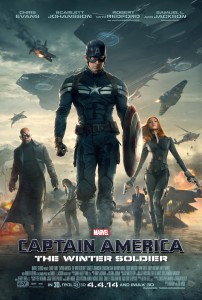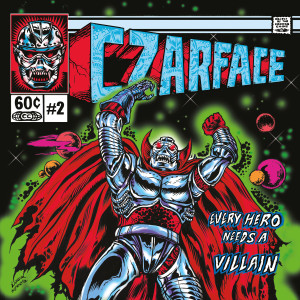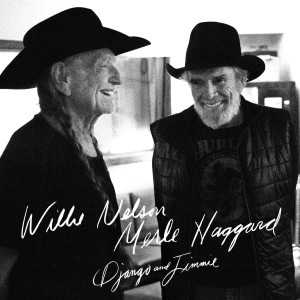Charlton’s Web
Had to chuckle a little when reading the drivel that Darwin Bond-Graham and Andrew Culp published a while back as “Left Gun Nuts: Opposition to Gun Control Comes from Many on the Left Also. Here’s Why They’re Wrong.” Most of their arguments are flawed, and some even support the conclusions they claim are “wrong”. They use loaded and pejorative language in place of actual argument or evidence most of the time, which is why they reach such naive conclusions (see, I can use pejoratives in place of argument too!). Mostly, though, they presuppose a liberal conclusion and simply reject all left and right outcomes a priori and then work backwards to support their “extreme center” position — while pretending to do the opposite. This leads them to seek small short- or medium-term gains by sacrificing long-term or more abstract ones (the kind of approach criticized among environmental conservationists in the article “Historical Lessons of Successful Conservation Movements” published on the same web site, and which crippled socialist political parties in the early 20th Century). Let’s go through their points one by one:
The people need to defend themselves against the government.
More broadly this might be phrased as “The people need to defend themselves against the powerful.” Or perhaps as “XXII. But any act against liberty, against the security or against the property of a man, exercised by anyone, even in the name of the law, except in the cases determined by it, and the forms which they prescribe, is arbitrary and void; the very respect of the law forbids us to submit to it, and if we wish to execute it by violence; it is permissible to repel it by force.” The authors state this position is wrong because, supposedly, “This dream is sadly a classic example of radical posturing done in the name of some distant hypothetical moment, and it ignores the actual harm that guns cause each and every day. ” Sadly, Bond-Graham and Culp are ignorant of history here. They live in a fantasy world in which evolutionary/progressive change is possible through the mechanisms of government established by vested interests to entrench their own power. Guns are inanimate objects, tools that place a degree of power in the hands of those who wield them. These authors apparently think it is proper to restrict that power to the hands of the elite. This is an authoritarian position. While I applaud the authors for their concern over the current material circumstances of the poor — though few on the left are “ignoring” those conditions as they claim — I disagree that those material interests can meaningfully be advanced by limiting the poor’s access to the tools of power. The authors’ suggestion merely reinforces the moral claim of elites to exclusive control over the instruments of power more generally, and fosters the legitimation of unequal treatment of different populations. This creates a negative feedback loop, and, in the end, reinforces the degraded material conditions of the poor. There is a symbolic aspect to access to the tools of power that must be considered alongside the material conditions of the poor and powerless today. Any material gains will quickly erode if the symbolic gains are not achieved first (or at the same time).
The authors acknowledge, “Of course gun control will not eliminate America’s patriarchal power structure, or pacify the culture of violence, or undo racism.” Yes! Sadly, they don’t stop with that valid point, and instead make an unrelated argument — not supported by that point — that, “gun control can do one thing very effectively: reduce the lethality of violent acts that stem from patriarchy, racism, and inequality. Instead of dying in a hail of bullets, victims will be survivors and can more effectively fight back. Indeed, in our present political context, gun control is fighting back against patriarchy and other forms of oppression.” This is where the article falters empirically, as discussed further below.
The authors’ car analogy (“Cars are a great example of how regulation reduces harm while creating a more equal society.”) is false. While cars are and should be regulated, no auto regulations take away the ability of the poor to access transportation. A better analogy would be airline security, which places onerous burdens upon travelers using commercial airlines, requiring them to submit to invasive, degrading, dragnet searches, while private and charter flight passengers face no such humiliations or invasions of privacy.
The cops should be disarmed, not the people.
The authors, in their very first sentence, agree: “Yes, the police should be disarmed.” Yet, strangely, they continue to argue in another direction. They note that “the proliferation of guns in America has provided an excuse for police to further intrude in our lives.” Maybe, but this is a disingenuous argument. Police should not be granted power on pretextual “excuses”. While the authors seem to agree, they return to a sort of path-of-least-resistance discourse that is premised more on expediency within existing structural conditions than viability of change to a new structural configuration. They throw up their hands saying that the real problems can’t be solved, so we’ll merely mitigate what (smaller) problems we can. This type of reductionist thinking is repeatedly disproved in history.
For one, the same web site published a piece that illustrates how killings by police are excised from statistical reports. There is classification that presupposes the legitimacy of certain shootings and killings in the very manner of collection of the data. It is a little hard to say how this factors into the specific analysis by Bond-Graham and Culp, because the authors provide no citations to the source(s) of their data.
There are plenty of specific instances to back up this view. Bill Black wrote a short piece, “The 80th Anniversary of the Strike that Freed Minnesota from Tyranny,” about the famous 1934 Minneapolis Teamsters Strike. He noted that the government colluded with business to create a police state that suppressed worker’s wages (and by extension, living conditions). The government attacked a protest for better conditions by the Teamsters, using “deputy” agents. “How can one take on a police state like the [business-run Citizens] Alliance ran in Minnesota that uses violence under the color of law as one of its many core tactics? If [the truck-driver’s union Teamsters] Local 574 had not responded in kind to the Alliance’s attack on unarmed workers the strike would have been broken and the Alliance’s police state would have persisted.” Although not mentioned by Black, a public commission found that “Police took direct aim at the pickets and fired to kill. Physical safety of the police was at no time endangered. No weapons were in possession of the pickets.” This suggests that indeed guns are more dangerous in the hands of police than ordinary citizens.
The authors make no mention of a closely related argument that guns should be taken from the hands of the military.
Lenin wrote in Pravda in 1917 in favor of “Abolition of the police, the army and the bureaucracy . . . to be replaced by the arming of the whole people.” As François Mitterrand said in the 1980s, as he capitulated on meaningful change in France, “Either you are a Leninist. Or you won’t change anything.”
Should we also ban knives and cars and bombs and bleach and acid?
“Some pro-gun Lefties sideline the obvious [sic] merits of gun control and argue that supposedly ‘deeper’ systemic issues should be our true focus.” They say, “Far from representing ‘state power’ over our lives, federal regulations often represent democratic rejection of the capitalist profit motive for the public good.” This absurd argument runs entirely counter to available evidence. Don Kates and Gary Mauser wrote “Would Banning Firearms Reduce Murder and Suicide? A Review of International and Some Domestic Evidence” and concluded that when guns are not available, other types of tools are used to commit violence. Knives, poisons, improvised explosive devices, clubs, etc. are all tools that can be used to kill someone. There isn’t much support for the idea that death from a gunshot is worse than other types of murder. And it is hard to see how the ability to “effectively fight back” against improvised explosive devices, poisons, etc. is materially greater. Bond-Graham and Culp are merely arguing that the symptoms should be treated and the root causes ignored, because nothing can really be done about the root causes so why not compromise, like worker unions did with healthcare and wages in the last half of the 20th Century (not to mention Mitterrand in France)?
Moreover, the idea that regulation is ever done in America for the purpose of “rejection of the capitalist profit motive for the public good” requires a bit more than such a casual, conclusory statement. The late Gabriel Kolko wrote The Triumph of Conservatism and Railroads and Regulation to underscore how regulation is only really implemented when it serves the interests of business, and realistically never without business consent. More recently, Martin Gilens and Benjamin Page wrote “Testing Theories of American Politics: Elites, Interest Groups, and Average Citizens.” The conclusion? Average citizens have basically no influence in American politics. In other words, Bond-Graham and Culp’s thesis is manifestly false. It comprises nothing more than tautology. At best it presumes that the poor and powerless have already won by overcoming the barriers to their participation in the regulatory apparatus of government. And that is absurd.
But wait, “should we ban bombs”? Don’t we already….? This brings up another argument not raised by the authors. When you “ban guns” this usually is not a deterrent to the really bad people, who will have them anyway. Murder is already illegal, just as is speeding in an automobile. It still happens. These bans primarily impact the people who are not the problem.
The government should not have a legitimate monopoly on the use of force.
The authors ask rhetorically, “is opposing gun control an effective way to challenge the violence of the American state? Does anyone honestly think that the abstract notion of gun rights is what keeps alive dreams of an armed struggle toward democratic emancipation, or imparts those who own guns with some mystical quality of ‘autonomy’ or ‘power’?” Apparently the authors do not inhabit the real world where these philosophically superior arguments are voiced (albeit in a more serious tone, minus the authors’ condescending “strawman” reference to “mystical” qualities) and supported. In the ghetto of their authoritarian liberal dogma, maybe it’s hard to blame them. They probably just don’t understand.
Finally, they argue, not so much in response to any existing arguments but sua sponte, “Confronting the gun industry on the national stage could be part of a larger strategy of opposing the war industry as a whole . . . .” Sorry, but no. The authors claim, “On a structural level, the federal budget is often decided through ‘guns versus butter’ tradeoffs whereby every dollar of military spending is taken from the mouths of the needy.” While, certainly, the federal budget is presented in such a manner, the reality is that a sovereign issuer of currency is not bound in this manner (only by other, political and inflationary, constraints). Proponents of Modern Monetary Theory have explained this. Adopting a viewpoint of guns vs. butter tradeoffs means accepting the basic terms of neoliberalism, and arguing solely on those terms. That represents a profound capitulation, and one that places the authors clearly on the right of the political spectrum — despite pretenses of the article toward “correcting” the “leftist” perspective on guns. But again, maybe it is simply a naive mistake on their part due to ignorance of economic matters.
Let’s turn to history more broadly though. Historian Carroll Quigley’s Tragedy and Hope (1966) posited that democracy coincidences with the availability of “amateur” weapons, and authoritarianism coincides with the dominance of specialist weapons. Without splitting hairs about what constitutes amateur vs. specialist weapons, this kind of endorses Chairman Mao‘s dictum that “political power grows out of the barrel of a gun.” To look at a more specific example, black armed resistance has been cited as a key factor in freedom movements in the United States by a number of authors. In the end, the idea that ordinary citizens should not have access to weapons fits within this framework as an endorsement of authoritarianism. At least, this suggests that taking away guns from ordinary citizens, or limiting the weapons available to ordinary citizens to those less powerful than those wielded by specialists, correlates to anti-democratic social structures. But such is the essence of Liberalism.
Better Approaches
It would be better if people like Bond-Graham and Culp focused on ways for the poor to seize power without the need for deadly violence as a way to obtain a more equal power distribution. For instance, Piven-Cloward Strategies would be a good start. Non-violent disruption of economic and bureaucratic systems works under many circumstances. It usually involves accepting that deadly force will be used against the poor. And their are certain preconditions — those holding power cannot be complete sociopaths.
There are other arguments that American gun “culture” is dangerous. It certainly is. But arguments for “gun control” measures make an assumption that “gun culture” is an ideology that vanishes if guns are not available, rather than something more abstract and persistent that might remain, largely intact, in spite of possible “gun control measures”. For this, there is usually scant argument, let alone evidence. Why not change the culture? This would be hard. So a “lowest hanging fruit” approach is taken, regardless of its troubling secondary effects.



